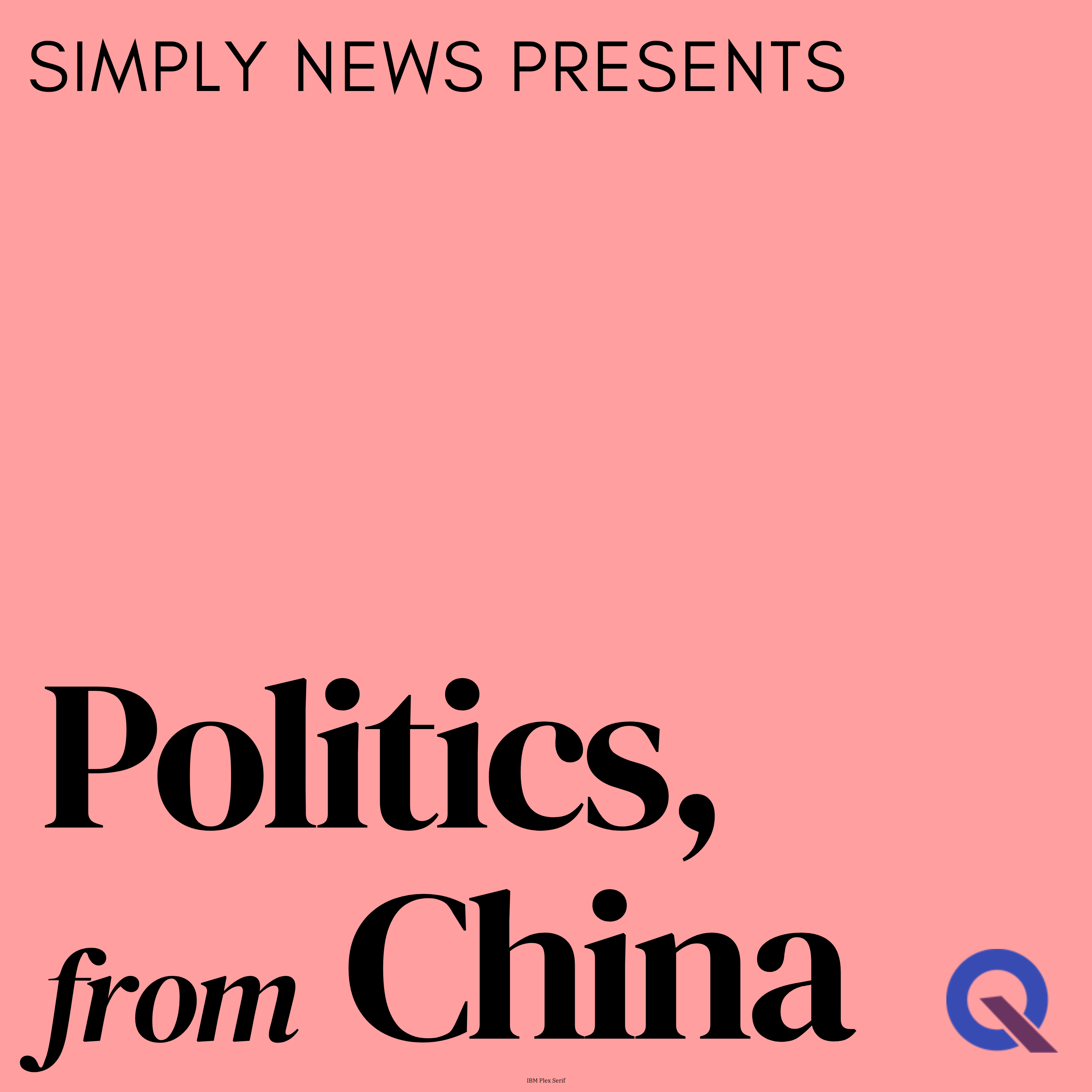Voters voting for Ke Wenzhe as a last resort in Taiwan. Exclusive: Takayuki Kobayashi secures the referees needed to run for the presidency of the Liberal Democratic Party in Japan. Thailand's political situation suddenly changed with the dismissal of the prime minister. Plus, the Korea president's 'Liberation Day' speech and its implications for Japan-South Korea relations.
Sources:
https://news.ifeng.com/c/8c5aKAa5Ww6
https://china.kyodonews.net/news/2024/08/60c852092ff5.html
https://finance.sina.cn/2024-08-16/detail-inciucpt7991062.d.html
https://china.kyodonews.net/news/2024/08/a94bbc08fb97.html
Outline:
(00:00:00) Introduction
(00:00:40) Exclusive: Takayuki Kobayashi secures the referees needed to run for the presidency of the Liberal Democratic Party
(00:02:46) Thailand's political situation suddenly changed and the prime minister was dismissed, Thaksin's daughter survived this time?
(00:04:09) The Korea president's "Liberation Day" speech did not mention Japan-South Korea relations
Good morning, and welcome to Simply Politics from China. It's Friday, August 16th. On today's show, voters voting for K. Wenje as a last resort and political rights being called aphrodisiacs. Plus, Takayuki Kobayashi secures the referees needed to run for the presidency of the Liberal Democratic Party. This coverage and more, up next. I'm David, and you're listening to Simply Politics from China. We start off with news from Japan, where the political landscape is heating up as the Liberal Democratic Party's presidential election approaches in September. Takayuki Kobayashi, a former minister in charge of economic security, is reportedly preparing to announce his candidacy. This comes after Prime Minister Fumio Kishida announced that he would not run. Here to discuss this further is Abi, a correspondent for Simply Politics from China. Can you tell us more about Kobayashi's potential candidacy? Certainly, David. Kobayashi, who is 49 years old and a four-time elected member of the House of Representatives, is expected to secure the required 20 recommenders for registering as a candidate. He is a member of the Nikai faction which has decided to disband. However, he is being backed by the core and young members of the Abi faction who are looking to refresh the party's image, which was damaged by the faction's kickback scandal. Interesting. And what about other potential candidates? Who else is expected to join the race? Several other prominent figures within the party have hinted at their desire to run. These include Secretary-General Toshimitsu Motegi, Sanei Takayichi, the Minister-in-Charge of Economic Security, Taro Kono, the Minister for Digital Affairs, Yoko Kamikawa, the Foreign Minister, and Ken Saito, the Minister of Economy, Trade and Industry. Motegi, in particular, has reportedly informed the party's Vice President, Taro Aso, of his intention to run. It seems like the presidential election is shaping up to be a fierce battle. How is Kobayashi positioning himself in this race? Kobayashi, who advocates conservative policies, has been rather coy when asked about his approach to the presidential election. After visiting Yasukuni Shrine, he told the media, "I can only improve my abilities as a politician. A person close to him has revealed that the prospect of securing the required 20 recommenders is in sight, indicating that his candidacy is likely to be confirmed soon." We'll certainly be keeping a close eye on these developments in China. Thanks, Abby. Shifting our focus to Thailand now, the political landscape there has been thrown into turmoil with the sudden dismissal of Prime Minister Priyut Chinocha. This comes after the Constitutional Court ruled that Priyut violated constitutional provisions by nominating individuals with criminal records as ministers. Here to discuss this further is James, a correspondent for Simply Politics from China. Can you tell us more about this unexpected development? Certainly, David. The ruling by Thailand's Constitutional Court is final and cannot be appealed, leaving no room for Priyut to maneuver after being ousted. This comes as a surprise, given that it has been less than a year since Priyut, a successful businessman, took office. He was once expected to boost Thailand's sluggish economy. What does this mean for the future of Thailand's political landscape? Despite Priyut's dismissal, the ruling coalition, formed by the Fotai Party, still holds an advantage in Thailand's House of Representatives and is expected to continue to govern. The new Prime Minister is also likely to come from the Fotai Party. While there is a certain impact, it is expected that there will not be significant changes in Thailand's domestic and foreign policies. Thanks for that report, James. Shifting our focus to the Korean Peninsula now, South Korean President Yoon Sukyo recently delivered a speech on Liberation Day, commemorating the country's liberation from Japanese colonial rule. In his speech, he presented a new vision for unification with North Korea, stating, "We must expand the freedom we enjoy to the northern region suffering from poverty and hunger." Here to discuss this further is Michael, a correspondent for Simply Politics from China. Can you tell us more about the significance of this speech? Certainly, David. The majority of President Yoon Sukyo's speech focused on the issue of inter-Korean unification, which is a significant shift. Interestingly, he did not touch on specific bilateral relations with Japan, which is unusual for a Liberation Day speech. Instead, he highlighted that South Korea's per capita gross national income surpassed Japan's for the first time last year. How has this omission of Korea-Japan relations been received? Reactions have been mixed. A senior official from the South Korean presidential office interpreted it as a manifestation of confidence in Korea-Japan relations. However, the Progressive Opposition Party, the Democratic Party of Korea, criticized the omission, calling it the worst congratulatory address for not mentioning historical issues between South Korea and Japan. They even labeled the Yoon Sukyo administration as a pro-Japanese treacherous government. Thanks for that significant update, Michael. And with that, we wrap up our stories for today. Thanks for listening to Simply Politics from China. We'll see you back here tomorrow. [MUSIC] [BLANK_AUDIO]
